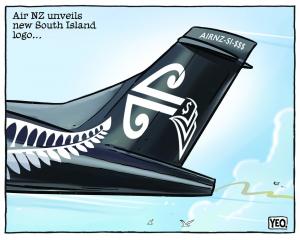When it introduced its replacement for the Foreshore and Seabed Act, the Government warned that if a consensus could not be found the status quo would remain; in other words, Maori hopes for legal enforcement of the provable property rights to coastal areas would remain unfulfilled.
It seems increasingly unlikely consensus will be achieved given the division even among tribal advocates, let alone in the wider community. A great many public submissions on the Marine and Coastal Area (Takutai Moana) Bill have been received by the Maori Affairs Select Committee which is considering the legislation.
Pressure is being applied, too, from a number of directions: there have been continuing illegal occupations of coastal land, especially in Northland, which has led to fear in communities, and groups such as the Coastal Coalition have been fomenting dissent among non-Maori.
Act New Zealand is trying to gather support to change provisions that would grant Maori customary title to parts of the foreshore and seabed by regulation alone. The issue of righting a presumed wrong is not germane to its argument; the ability of the executive - not Parliament - to govern by regulation is.
The wording of the Bill means Maori will be able to claim title by an order-in-council - a regulation that is simply notified publicly in the official Gazette after negotiation with the relevant minister. Regulations are not subject to the scrutiny of Parliament before they take effect. They were used extensively, for example, by the late Sir Robert Muldoon, to rule without reference to Parliament.
Treaty of Waitangi settlements are also negotiated in private, but they are then invariably drafted into a specific Bill placed before MPs.
The prospect - however remote - of land title being transferred to private interest groups in secret is one that should alarm all democrats. Our system of select committee scrutiny and parliamentary debate is designed to avoid any suspicion of corruption or political favouritism.
The Government has argued that comparative arrangements as that proposed already exist in the form of offers-back under the Public Works Act, the disposal of surplus Crown properties (by agencies such as the Crown Health Financing Agency), the process for bringing land into fee simple under the Land Transfer Act, and settlements negotiated by Crown Law with third parties, among others.
It also claims that, while an agreement can be made between the Crown and Maori claimants without parliamentary scrutiny, the Secretary for Justice, before it comes into effect, must send copies to local authorities affected by the agreement; the Ministers of Conservation, Fisheries, Maori Affairs and "any other parties considered to be directly affected". That precedents may exist, however, does not make each subsequent application justifiable.
There is sufficient division among Maori to suggest the select committee also faces a difficult task. Some tribes have agreed to support the legislation; others are demanding greater concessions. Even the Maori Party, a partner in the governing coalition, is itself divided.
The Government is unlikely to concede much more: it claims it has drafted the legislation along the lines exposed in the 2003 court decision which triggered the original Act, with the added concept of "tikanga" - a test of Maori tradition and practice dependent on the iwi or the hapu claiming title and what their practices were in the claimed part of the coast.
New Zealanders of all ethnicities may be presumed to regard free access to the coastline of vital importance. Rightly (or wrongly in law), most believe the public owns the beaches.
The Bill will change that because, among other matters, although it ascribes a status to the land from the high tide mark to the territorial limits as being neither owned by the Crown nor any other person, it does not grant free access. The Government has said it will ensure this omission is corrected.
But the Bill offers something new and exclusive: the ability to exclude the public from "wahi tapu", defined in inordinately broad terms as places "sacred to Maori in the traditional, spiritual, religious, ritual, or mythological sense."
Tribes granted title will also become the owners of minerals, apart from petroleum, gold, silver and uranium, that may be under the seabed - there has already been speculation that the North Island's ironsands deposits are a target.
In a matter of such sensitivity to New Zealander's long-established emotional and cultural links with the coastline, a wise Government would ensure no part of this legislation will offer the potential for a private benefit bargained in secret.












